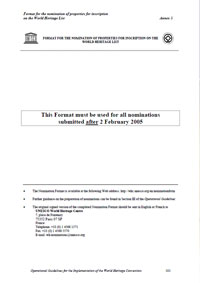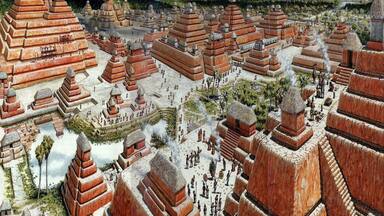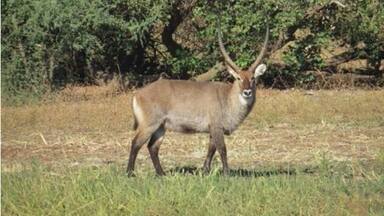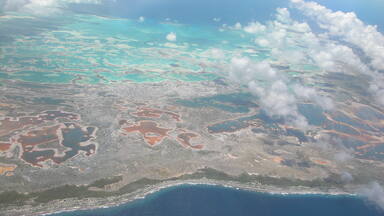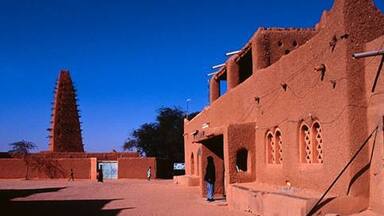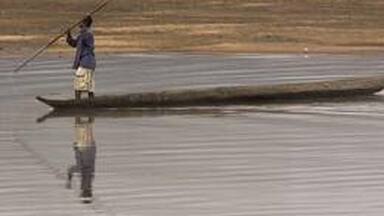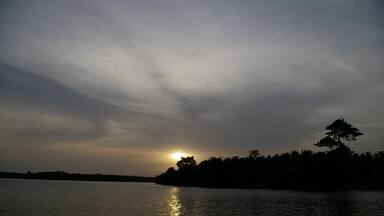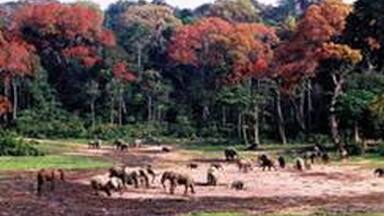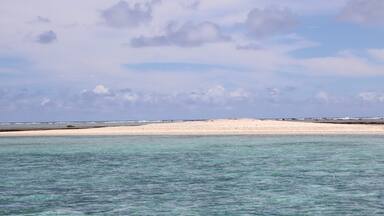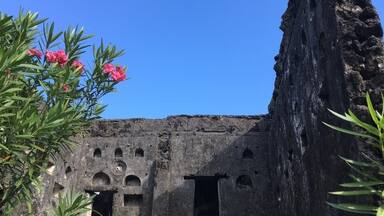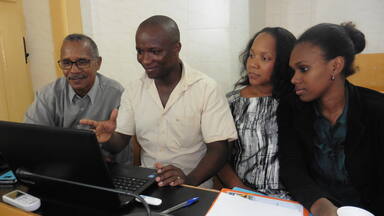Tentative Lists
A Tentative List is an inventory of those properties which each State Party intends to consider for nomination.
Disclaimer
The Tentative Lists of States Parties are published by the World Heritage Centre at its website and/or in working documents in order to ensure transparency, access to information and to facilitate harmonization of Tentative Lists at regional and thematic levels.
The sole responsibility for the content of each Tentative List lies with the State Party concerned. The publication of the Tentative Lists does not imply the expression of any opinion whatsoever of the World Heritage Committee or of the World Heritage Centre or of the Secretariat of UNESCO concerning the legal status of any country, territory, city or area or of its boundaries.
Out of 195 States Parties to the Convention, 189 have submitted a Tentative List.
Decisions (13)
The World Heritage Committee,
- Having examined Document WHC-07/31COM/8A,
- Reaffirming that Tentative Lists are instrumental for planning purposes and for comparative analysis of properties to be nominated for inscription on the World Heritage List,
- Stressing the importance of assistance by the World Heritage Centre, at countries' request, in the development of Tentative Lists,
- Requests the World Heritage Centre, in consultation with the Advisory Bodies, to propose a revision of Part II. C ("Tentative Lists") of the Operational Guidelines, in order to clarify the procedures of technical analysis by the World Heritage Centre and to ensure that properties proposed on the Tentative Lists are consistent with properties already inscribed on the World Heritage List;
- Further requests the World Heritage Centre to present to the World Heritage Committee, at its 32nd session in 2008, a proposal in this regard.
The World Heritage Committee,
- Having examined Documents WHC/19/43.COM/7, WHC/19/43.COM/7A, WHC/19/43.COM/7A.Add, WHC/19/43.COM/7A.Add.2, WHC/19/43.COM/7A.Add.3, WHC/19/43.COM/7B, WHC/19/43.COM/7B.Add, WHC/19/43.COM/7B.Add.2 and WHC/19/43.COM/7A.Add.3,
- Recalling Decision 42 COM 7, adopted at its 42nd (Manama, 2018),
Management Plans in the context of urban development - Noting that the many Management Plans and management systems for urban properties are not adequately anchored in the legal mechanisms, systems, and processes for urban development,
- Also noting that the pressures of high investment urban development projects in and around properties are increasingly a threat to their Outstanding Universal Value (OUV), and that in contrast, the OUV could provide a valuable opportunity for the property and its wider setting to define a new urban vision that integrates and valorizes the OUV with new needs and aspirations,
- Recalling that the approach of the 2011 UNESCO Recommendation on the Historic Urban Landscape has highlighted the need for urban areas to be well integrated into their wider social, economic and cultural context, calls on all States Parties to prepare and deliver Management Plans, for properties in and around urban areas, so that their planning elements can be integrated directly into the planning and development policies, plans, processes and instruments; regardless of whether the property is inscribed for its urban values or not;
- Requests the World Heritage Centre and the Advisory Bodies to continue reflecting on the mechanisms and tools needed to assess and guide interventions in and around urban properties to sustain the OUV of the properties and to promote sustainable development and actively engage with the wider development processes that could over time impact the appearance, use, and meaning of buildings and spaces in properties and their settings;
- Notes with appreciation the International Union of Architects Forum (UIA) on “Mass Tourism in Historic Cities”, which was held in Baku, Azerbaijan, on 7-9 June 2019 and welcomes the proposal of the UIA to prepare, in close cooperation with the World Heritage Centre and the Advisory Bodies, guidelines for architectural competitions in and around World Heritage urban properties that will recognise their Outstanding Universal Value;
- Welcomes the offer of the Government of Japan to host an international experts meeting in January 2020 to provide further guidelines for the integration of the assessment of the impacts for interventions in the wider processes of urban management by applying the 2011 Recommendation on the Historic Urban Landscape to address the challenges of increased urbanization in close cooperation with the World Heritage Centre and the Advisory Bodies;
- Calls on the UNESCO Secretariat to develop measures to address the inherently limited nature of institutional capacity in SIDS, acting as an impediment in identifying, inventorying and proposing potential cultural and natural heritage sites for listing;
Tourism - Acknowledging the contribution of sustainable tourism to the 2030 Agenda on Sustainable Development and the positive impact it can have on local communities and the protection of World Heritage properties, nevertheless notes with concern that the number of properties negatively affected by overcrowding, congestion and tourism infrastructure development continues to increase;
- Noting that the protection of Outstanding Universal Value (OUV) must be a central objective for all World Heritage properties, requests States Parties to develop visitor management plans and strategies that address the seasonality of tourism (smoothing visitor numbers over time and spreading visitors across sites), encourage longer more in-depth experiences promoting tourism products and services that reflect natural and cultural values, and limit access and activities to improve visitor flows and experiences, while reducing pressures on the attributes which underpin OUV ;
- Encourages the States Parties to support UNESCO in its efforts to assist heritage and tourism managers with system development and data collection to help destinations understand their specific situations and early warning signs, provide incentives for sustainable tourism development and raise awareness to change visitor behaviour;
- Calls on UNESCO Secretariat to recognize opportunities for forging synergies between core UNESCO activities that could be harnessed to strengthen heritage sites: youth, heritage tourism training, sustainable heritage tourism and biodiversity, and relate it directly to SIDS;
Heritage Impact Assessments / Environmental Impact Assessments (HIAs/EIAs) - Notes the progress of revising the guidance on impact assessment for World Heritage undertaken by the ICCROM/IUCN World Heritage Leadership Programme together with the World Heritage Centre and ICOMOS.
The World Heritage Committee,
- Having examined Documents WHC/17/41.COM/7, WHC/17/41.COM/7A, WHC/17/41.COM/7A.Add, WHC/17/41.COM/7A.Add.2, WHC/17/41.COM/7B and WHC/17/41.COM/7B.Add and WHC/17/41.COM/7B.Add.2,
- Recalling Decision 40 COM 7, adopted at its 40th session (Istanbul/UNESCO, 2016),
- Thanks the State Party of Poland, Host Country of the 41st session of the World Heritage Committee (Krakow, 2017), for having organized the first World Heritage Site Managers Forum, as a capacity-building exercise aiming at increasing the understanding of the World Heritage decision-making process among site managers, in order to achieve a more effective protection of the Outstanding Universal Value (OUV), takes note with appreciation of the World Heritage Site Managers’ Forum Statement and encourages the future Host Countries to continue this initiative and organize World Heritage Site Managers Forums in conjunction with the World Heritage Committee session;
Statutory matters related to Reactive Monitoring - Takes note of the practices of the Secretariat to address mass campaigns on state of conservation issues;
- Recalling the importance of Paragraph 172 of the Operational Guidelines and its adequate implementation, further recalls Decision 40 COM 7, which requests the World Heritage Centre, in cooperation with the Advisory Bodies to evaluate the effectiveness of the Reactive Monitoring including procedures and case studies and to present a preliminary report for the consideration by the World Heritage Committee at its 42nd session in 2018, if funds are available;
Emergency situations resulting from conflicts - Deplores the conflict situation prevailing in several countries, the loss of human life as well as the degradation of humanitarian conditions and expresses its utmost concern at the damage sustained and the threats facing cultural and natural heritage in general;
- Urges all parties associated with conflicts to refrain from any action that would cause further damage to cultural and natural heritage and to fulfill their obligations under international law by taking all possible measures to protect such heritage, in particular the safeguarding of World Heritage properties and the sites included in the Tentative List;
- Also urges States Parties to adopt measures against using World Heritage properties for military purposes;
- Takes note of the progress made by the World Heritage Centre and the Advisory Bodies to launch a reflection on a post-conflict recovery strategy, and of the support extended so far through technical assistance, capacity-building, and exchange of best practices in this regard, and recommends that further support for threatened or damaged World Heritage properties be pursued;
- Notes with concern that the conflict situation in several countries in the world has increased considerably the workload of the World Heritage Centre staff, and that an adequate implementation of the Action Plans for the Emergency Safeguarding of Cultural Heritage in Mali, Syria, Iraq, Libya and Yemen requires additional financial and human resources at the World Heritage Centre and in the UNESCO field offices; also notes the increased demands on the resources of the Advisory Bodies;
- Calls on the international community to provide financial support for the implementation of the UNESCO Action Plans for the Emergency Safeguarding of Cultural Heritage in Syria, Iraq, Libya and Yemen, including for additional human resources at the World Heritage Centre and in the UNESCO field offices;
- Also expresses its utmost concern about the impacts of conflicts causing an escalation of the already severe poaching crisis, as armed groups are financing their activities through illegal wildlife trade, which is having a severe impact on African wildlife, and uncontrolled development, threatening the very survival of species and the Outstanding Universal Value (OUV) of natural World Heritage properties;
- Launches an appeal to all Member States of UNESCO to cooperate in the fight against the illicit trafficking of cultural heritage objects (UNESCO 1970 Convention) and illegal wildlife trade, including through the implementation of the Convention on International Trade in Endangered Species of Wild Fauna and Flora (CITES), and to pursue the implementation of the United Nations Security Council Resolutions regarding cultural heritage protection in conflict areas, especially Resolution 2199 and 2347;
Other conservation issues
Reconstruction - Noting the continued need to address the issue of reconstruction in World Heritage properties following conflicts or disasters, expresses its satisfaction that several international meetings have taken place or are being planned on recovery at large, and reconstruction in particular, and welcomes the offer of the Government of Poland to host an international conference on Reconstruction to provide guidelines to the World Heritage Committee to be held in Warsaw in March 2018;
- Encourages the World Heritage Centre and the Advisory Bodies to continue, with all relevant stakeholders, the reflection on reconstruction within World Heritage properties as a complex multi-disciplinary process, towards developing new guidance to reflect the multi-faceted challenges that reconstruction brings, its social and economic context, the short- and long-term needs of properties, and the idea of reconstruction as a process that should be undertaken within the framework of the Outstanding Universal Value (OUV) of the properties;
- Urges States Parties to include risk mitigation measures in the management plans of World Heritage properties to address the potential effects of conflicts or disasters on their integrity;
- Also encourages the inclusion of capacity-building initiatives in the framework of recovery plans;
- Requests the States Parties involved in reconstruction projects to maintain dialogue and close consultation and cooperation with the World Heritage Centre and the Advisory Bodies;
Climate change - Recalls its Decision 40 COM 7 in relation to Climate Change, and requests the World Heritage Centre and the Advisory Bodies to pursue the implementation of this Decision as a priority, within available resources;
- Expresses its utmost concern regarding the reported serious impacts from coral bleaching that have affected World Heritage properties in 2016-17 and that the majority of World Heritage Coral Reefs are expected to be seriously impacted by Climate Change;
- Noting that the World Heritage Centre, in consultation with IUCN, has initiated a scientific assessment by independent experts to better understand the impacts of Climate Change on coral reef World Heritage properties, also requests the World Heritage Centre and IUCN, as resources allow, to complete this assessment as soon as possible, and to ensure its findings are communicated effectively, and further requests the World Heritage Centre and Advisory Bodies to further study the current and potential impacts of Climate Change on the OUV of World Heritage properties;
- Reiterates the importance of States Parties undertaking the most ambitious implementation of the Paris Agreement of the United Nations Framework Convention on Climate Change (UNFCCC) by “holding the increase in the global average temperature to well below 2°C above pre-industrial levels and by pursuing efforts to limit the global average temperature increase to 1.5°C above pre-industrial levels, recognizing that this would significantly reduce the risks and impacts of climate change” and strongly invites all States Parties to ratify the Paris Agreement at the earliest possible opportunity and to undertake actions to address Climate Change under the Paris Agreement consistent with their common but differentiated responsibilities and respective capabilities, in the light of different national circumstances, that are fully consistent with their obligations within the World Heritage Convention to protect the OUV of all World Heritage properties;
- Takes note with satisfaction of the updated UNESCO Strategy for Action on Climate Change, approved by the UNESCO Executive Board at its 201st session in April 2017 (201 EX/Decision 5.I.B), and invites all States Parties to engage fully with the World Heritage Centre and the Advisory Bodies, for its effective implementation;
- Also recalls the need for all States Parties to continue, and where necessary to strengthen all efforts to build resilience of World Heritage properties to Climate Change, including by further reducing to the greatest extent possible all other pressures and threats, and by developing and implementing climate adaptation strategies for properties at risk of Climate Change impacts;
- Requests furthermore the World Heritage Centre and the Advisory Bodies to report on progress in relation to action on World Heritage and Climate Change, and to present, subject to available time and resources, a proposed update to the “Policy Document on the Impacts of Climate Change on World Heritage Properties”, for possible consideration by the World Heritage Committee at its 42nd session in 2018, and notes with appreciation the willingness of civil society groups to engage in this process;
Urban pressure - Noting that the increasing urban pressure in and around numerous World Heritage properties has become a major threat to their Outstanding Universal Value (OUV),
- Taking note of the outcomes of the Habitat III Conference and notably the adoption of the “New Urban Agenda”,
- Also taking note of the necessity to pursue the application of the Historic Urban Landscape approach towards a more effective and durable conservation and management of the urban heritage inscribed on the World Heritage List, and requests the States Parties to fully consider the 2011 UNESCO Recommendation on Historic Urban Landscape (HUL) ;
- Calls on States Parties to take into account the recommendations of the Global Report on Culture for Sustainable Urban Development and take the necessary measures to integrate the role of culture in sustainable urban development in order to achieve SDG 11 – Target 4;
Vandalism - Notes with concern increasing vandalism at World Heritage properties and encourages States Parties to improve monitoring and security measures as well as awareness raising on the detrimental effects of vandalism, and to consider introducing creative solutions to allow visitors to express themselves without leaving permanent marks or damage;
Disasters Risk Reduction - Welcomes the Action Plan for the implementation of the Strategy for reinforcing UNESCO’s action for the protection of culture and the promotion of cultural pluralism in the event of armed conflict (hereafter the Strategy), adopted by the UNESCO General Conference in 2015 (38 C/Res.48), whose implementation would be of great importance for the protection of World Heritage in situations of armed conflicts and disasters associated with natural and human-made hazards;
- Encourages States Parties to provide support to the implementation of the Strategy and its Action Plan, including through contributions to the Heritage Emergency Fund, as well as in kind contributions and advocacy at the highest international levels for the integration of a concern for culture in key international humanitarian, development, and peacekeeping operations;
Invasive species - Recalling its Decision 39 COM 7, adopted at its 39th session (Bonn, 2015),
- Noting with concern the continued threat posed by invasive alien species on natural World Heritage properties, strongly encourages the States Parties to develop adequately resourced invasive alien species strategies that emphasize prevention and early warning and rapid response in World Heritage properties;
Illegal trade of wildlife species - Reiterates its utmost concern about the continued impacts of poaching and illegal logging on World Heritage properties driven primarily by the illegal trade of wildlife species and its products, and requests the World Heritage Centre and IUCN to take action, as resources permit, to strengthen the collaboration between the Convention on International Trade in Endangered Species of Wild Fauna and Flora (CITES) and the World Heritage Convention;
- Reiterates its appeal to all Member States of UNESCO to cooperate in the fight against the illicit trade in wildlife and its products, including through the implementation of the CITES, and with the full engagement of transit and destination countries;
Integrated approaches for the conservation of natural and cultural heritage - Recalling that the World Heritage Convention explicitly links the concepts of cultural and natural heritage, highlights the importance of promoting integrated approaches that strengthen holistic governance, improve conservation outcomes and contribute to sustainable development;
- Notes with appreciation the growing interest and efforts by the States Parties and heritage practitioners to develop and apply integrated approaches to conservation of natural and cultural heritage, and encourages the States Parties, the World Heritage Centre and the Advisory Bodies, in cooperation with universities and other relevant actors, to continue and expand these efforts, in accordance with the Policy Document for the integration of a Sustainable Development Perspective into the Processes of the Convention (2015);
List of World Heritage in Danger - Reiterates its request to the World Heritage Centre, in consultation with the Advisory Bodies and States Parties, to promote better understanding of the implications and benefits of properties being inscribed on the List of World Heritage in Danger, and to develop appropriate information material in this regard with a view to overcome the negative perceptions of the List of World Heritage in Danger. The information material should highlight the importance of the protection of the Outstanding Universal Value;
Other issues - Takes note with appreciation of the Chairperson of the 41st session of the World Heritage Committee’s initiative on structured dialogue with civil society and encourages States Parties and civil society organizations to continue exploring possibilities how civil society can further contribute to enhanced conservation of heritage on the site and national level and provide relevant input to the heritage related debate at the global level;
- Notes, in conformity with Resolution 20 GA 13 of the General Assembly of the World Heritage Convention and the Decision 39 COM 11 (Bonn, 2015) of the World Heritage Committee, the establishment of the International Indigenous Peoples Forum on World Heritage as an important reflection platform on the involvement of Indigenous Peoples in the identification, conservation and management of World Heritage properties, with a particular focus on the nomination process.
The World Heritage Committee,
- Having examined Document WHC-06/30.COM/8A.Rev,
- Takes note of the Tentative Lists presented in Annexes 2 and 3 of this document.
The World Heritage Committee,
1. Having examined Document WHC-05/29.COM/8A,
2. Recalling its Decisions 28 COM 14A and 7 EXT.COM 4A, respectively adopted at its 28th session (Suzhou, 2004) and at its 7th extraordinary session (UNESCO, 2004),
3. Takes note of the Tentative Lists presented in Annexes 2 and 3 of such document.
Read more about the decisionThe World Heritage Committee,
1. Takes note of the Tentative Lists presented in document WHC-04/28.COM/14ARev;
2. Noting also that the recently completed study of the World Heritage List and Tentative Lists prepared by ICOMOS and IUCN would contribute significantly to the discussion concerning the improved use of tentative lists as requested by the Committee in its Decision 27 COM 8A,
3. Decides to include on the Agenda of its 29th session in 2005 an item concerning the improved use of Tentative Lists.
